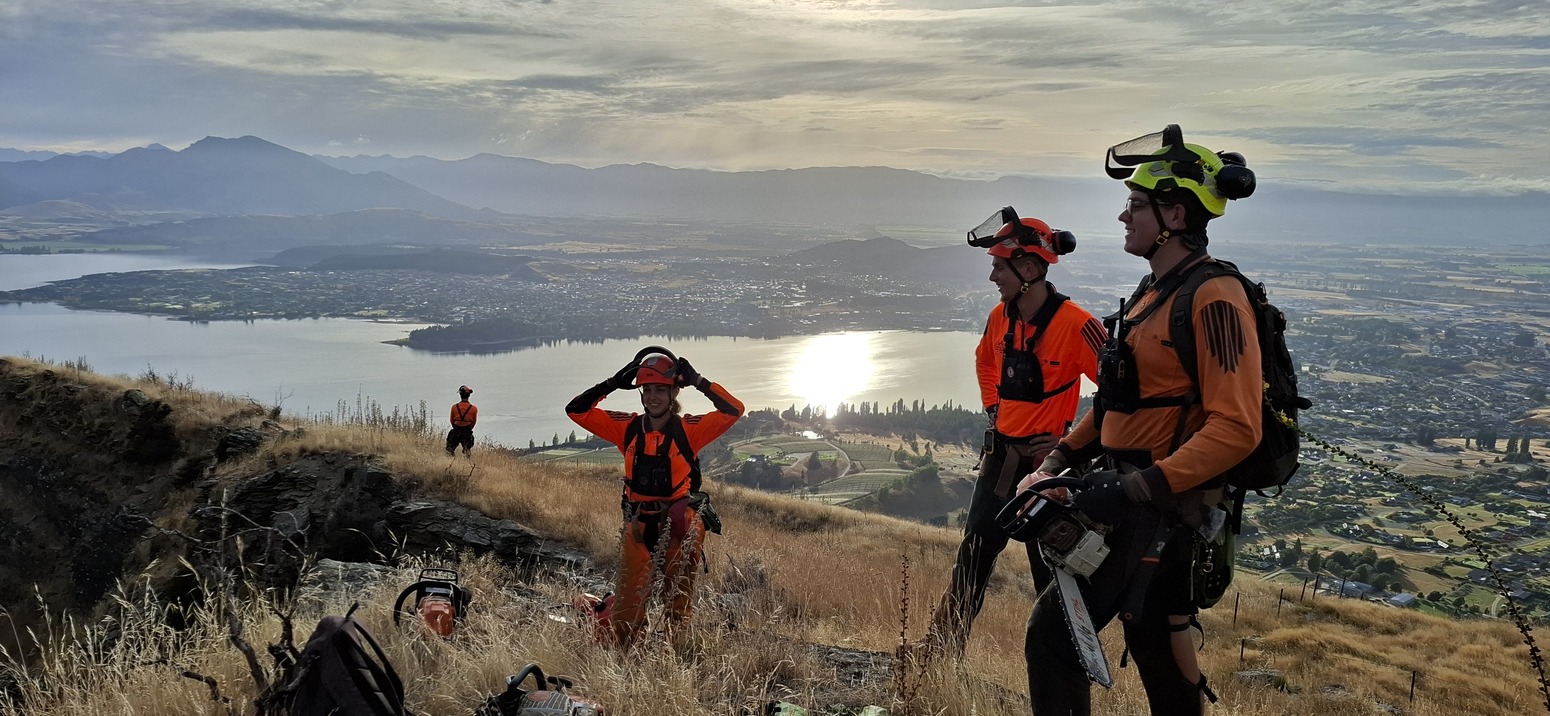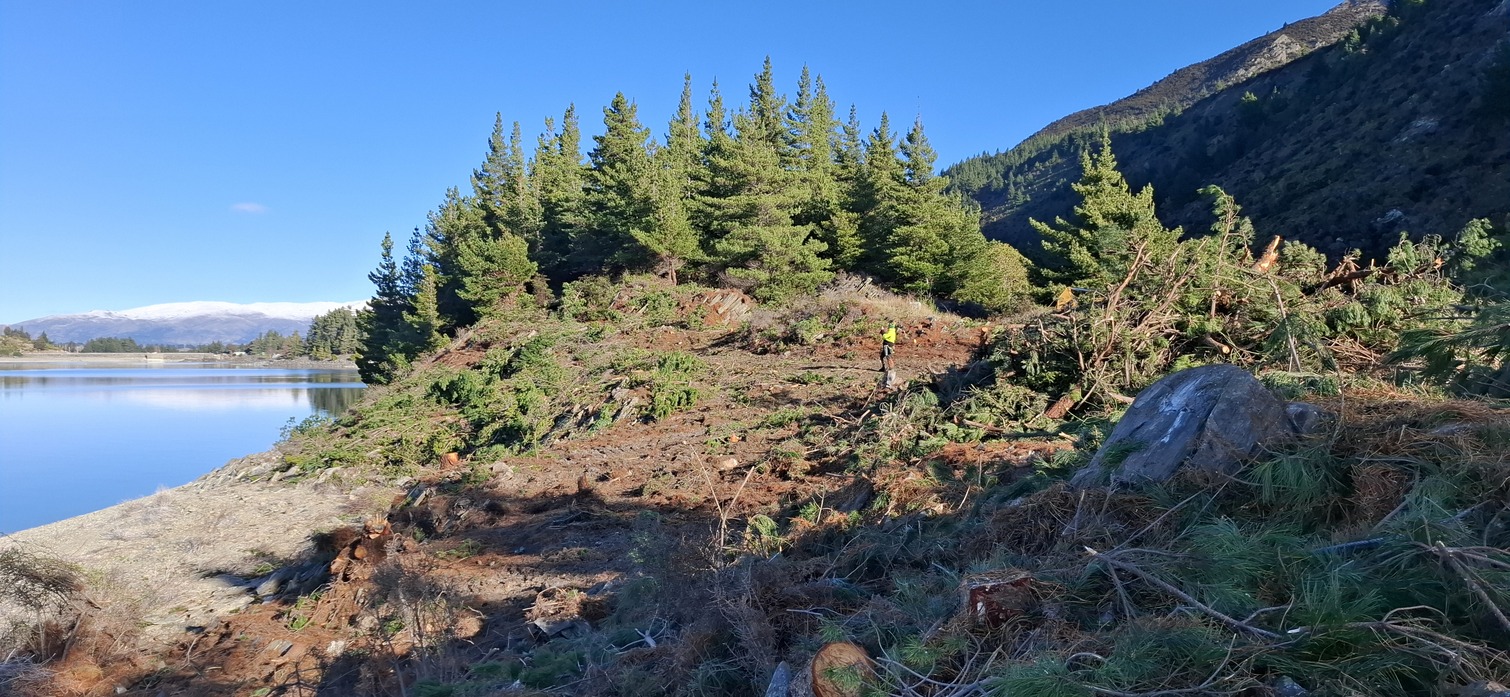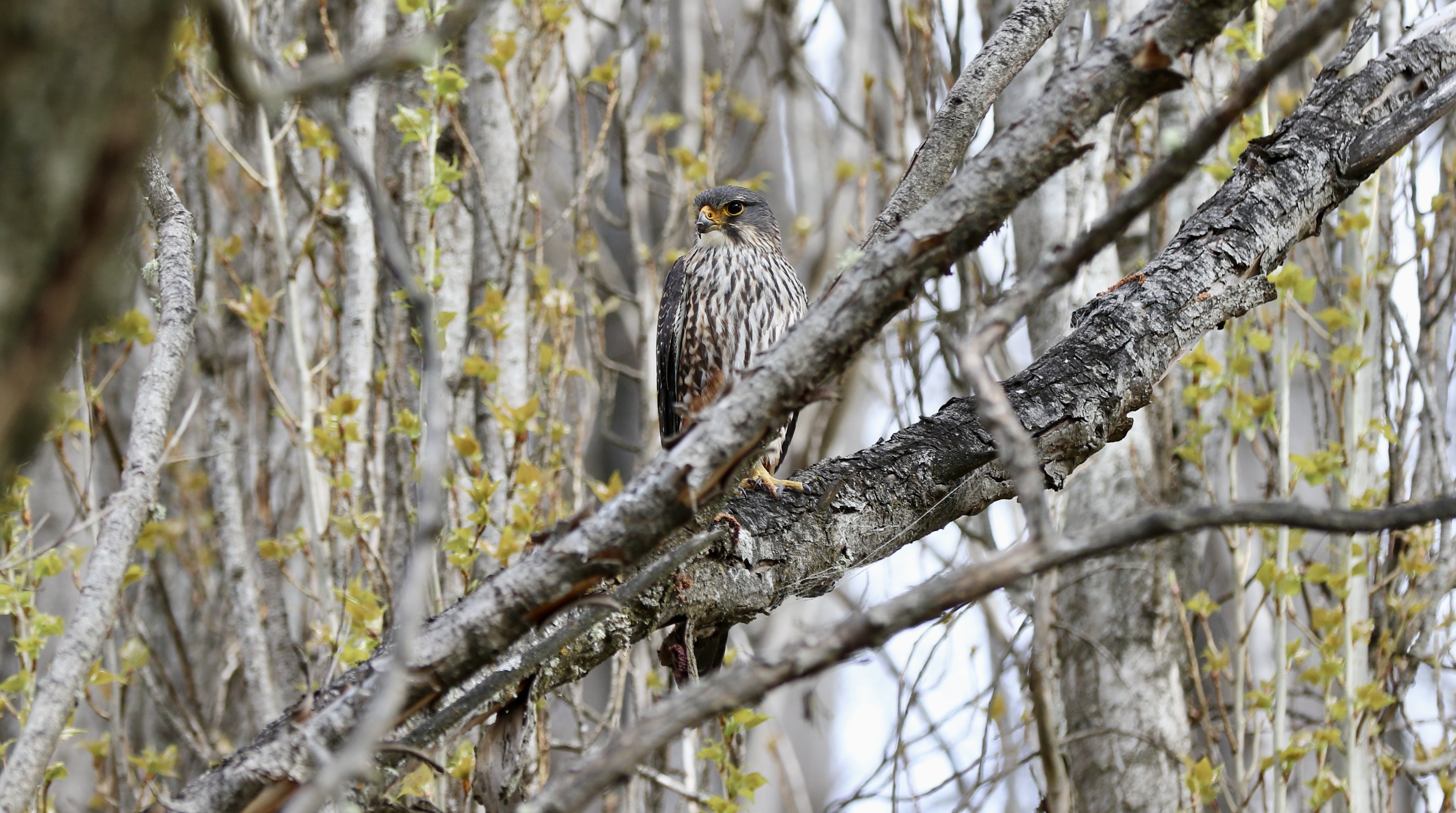Working for ‘wilding-free Upper Clutha’
Maddy Harker
23 November 2025, 4:04 PM
 Workers take a break from wilding pine removal above Wānaka.
Workers take a break from wilding pine removal above Wānaka. The Upper Clutha Wilding Tree Group (UCWTG) is celebrating what it calls a “landmark 2024–2025 year”, highlighting major progress in its fight against invasive conifers.
UCWTG chair Rob Phillips said the group made significant on-the-ground progress, formally became a charitable trust, and completed a new 10-year strategy to steer its next phase of work.
He said the group’s progress was driven by collaboration.
“Our partnerships with the Otago Regional Council [ORC], Queenstown Lakes District Council [QLDC] and landowners have allowed us to undertake large-scale control operations in several high priority sites as well as working with volunteers in seven community working bees to a total of 200 hours.”
Formed in 2022, the volunteer-led group focuses on controlling the fast-spreading, environmentally damaging plant in the Upper Clutha.
Over the past year it carried out extensive field operations across sites including Hunter Valley, Dingleburn and Glen Dene stations, The Neck, Dinner Creek, and The Camp at Lake Hāwea, as well as Mt Aspiring, Hillend, Motatapu stations, and Stevenson’s Peninsula.
UCWTG also completed helicopter surveys over Stevenson’s Peninsula, areas of Wānaka and Lake Hāwea, and the lower Cardrona and Motatapu valleys.
Read more: Group makes headway in battle against wilding trees
In total, the group funded control of 7,302 wilding conifers across 689 hectares, supported by more than $195,000 in funding from ORC, QLDC, Love Wānaka, the Wanaka A&P Show, and the Wakatipu Wilding Conifer Control Group.

UCWTG’s efforts in 2024–2025 led to the removal of over 7,000 wilding trees across nearly 700 hectares.
The year also saw volunteers trained in more advanced control methods, building the group’s capacity for larger operations.
UCWTG says there is still major work ahead, with emerging challenges including the spread of other invasive species such as Chilean mayten.
However, the group reports it is in a strong financial position, with stable funding secured through to June 2027.
“As we look to the 2025–2026 year, we will focus on executing our 10-year strategy, aiming for a wilding-free Upper Clutha,” Rob said.
“Our goals include controlling existing infestations, enhancing community awareness and strengthening partnerships.”
The group is holding a public meeting on Tuesday December 2 at the Wānaka Presbyterian Church, Tenby St, at 7.30pm.
PHOTOS: UCWTG






